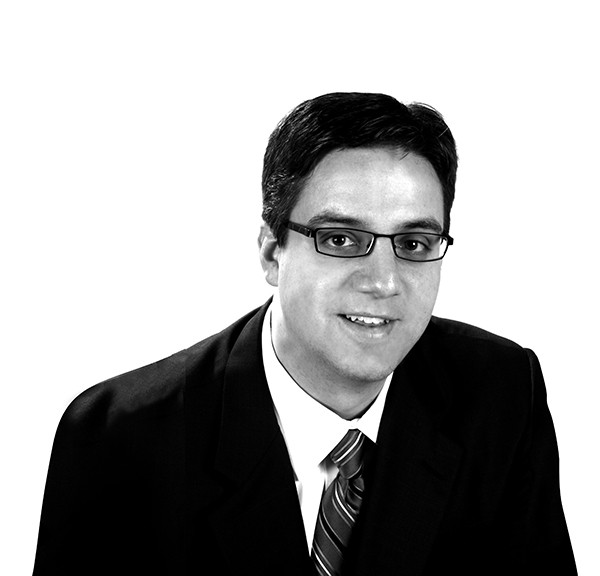Lessons From This Downturn
Post on: 3 Апрель, 2015 No Comment

Error.
Updated Dec. 1, 2008 12:01 a.m. ET
THIS TIME, IT’S DIFFERENT . Many of us in the investment world have learned to shun that phrase. Over long periods, we have learned to recognize market cycles, from recession, to boom, to excessive euphoria. What happened this time around? Were there lessons that we did not learn well enough, forgot or never learned at all? Maybe so. What I do know is that along with tremendous pain in today’s market correction, there is also opportunity. What we learn now can be a life- changing experience and a competitive advantage.
When I contemplate my 28 years as a financial adviser, I appreciate each lesson that accompanied a significant market downturn. In 1987, I learned that selling into mass capitulation was not the right choice for long-term investors. In 1994, when nothing seemed to work, quality and patience ultimately prevailed. In 2000, when things looked too good to be true, they were. In 2008, I have been forced, harshly, to re-evaluate what I can control. I now recognize what I cannot control: the stock market, the bond market, the economy — almost everything. However, I am in charge of my own actions. My principles are not for sale. I must be able to rely completely on my integrity and my purpose.
Even if you follow all the rules, your investment strategy is bound to be imperfect. There are always variables and unknowns beyond our control. Successful investing takes time, flexibility and patience. Tim Foley for Barron’s
Every American knows what it feels like to fight for our beliefs. Among other things, this means looking to ourselves, not to others, to take responsibility for our actions. This means accepting consequences. Investing is not about how to get everything and then blame someone else when it does not work out.
So, how did we arrive at this point? The 9/11 disaster was a shock to America. It tested us spiritually and economically. But the subsequent rebound of the economy invigorated our confidence. Over the next five years, easy cash, higher housing valuations and rising stock prices lured us into abandoning our discipline and common sense. All of that plays a part in answering the question, Who is responsible? The answer is, All of us. We must face that raw fact if we are to recover and heal. Each of us was an initiator, a participant or a beneficiary. To assign accountability to others while denying our respective roles is to miss an opportunity to learn from our mistakes.
But wait, you followed the guidelines of proper investing. You owned high-quality securities. You may have had little debt and were living within your means. You were continuing to save, and you were highly diversified. And now, where do you stand? In the past six months, you have lost a third of your investments. Why shouldn’t you be mad at this someone else, if you could just figure out who this is?
It’s important to remember that investing is the transition of human capital to financial capital over long periods. In youth, your best investment is in yourself and your professional capabilities. With the guidance of a trusted financial adviser, you develop a strategic plan that harvests the fruits of your human capital and turns them into financial capital. From the start, you and the adviser focus on goals, resources, risk tolerance, and the timeline. Your adviser can become a close advocate, even a friend. However, the adviser isn’t in the fortune-telling business, but in the practice of assessing probabilities.
This is where responsibility comes in. A renowned investor like Warren Buffett will tell you that market movements cannot be predicted over short periods. And, by the way, the time to have the fire drill is not in the middle of the fire! Asset-allocation changes must be made when the markets are not in turmoil. Ironically, the right investment move almost always feels wrong at the ideal time. This is when the most money is made. Even if you follow all the rules, your investment strategy is bound to be imperfect, because there are variables and unknowns beyond our control. Successful investing takes time, patience, flexibility and the investor’s participation.

Let’s consider what we can do to turn around today’s economy with a new paradigm. What if you had the ability to create a new economy, one driven as much by savings as by consumption? To begin with, we need to do something about the rampant waste in our culture. To deal with problems that we have created, we have overly expanded many industries, including health care, garbage collection, and insurance.
Imagine if our efforts were focused on prevention. What benefits could result from a tax credit directed toward physical fitness and health? What would be the impact of vastly increased recycling? How would you invest the savings from your reduced insurance premiums? How might our children develop if their educations required a substantial increase in community service?
There are short-term costs to big cultural changes, but think of the long-term payoff. Here, in our power, is a legitimate solution to our dilemma. As individuals and as a nation, we can change so much with just a shift in our priorities. To borrow a phrase from President John F. Kennedy, perhaps we should ask not what our economy can do for us, but what we can do for our economy.
Taking responsibility for ourselves requires honesty and courage. At the end of every day, how do we answer the question Have I lived up to my potential today?
When I was a little girl, my parents counseled, Wishing and hoping are not viable strategies for achieving your goals. If you want something, make it happen. In business and in life, this is the best advice that I have ever received. Make it happen.
SALY GLASSMAN, a Merrill Lynch senior vice president based in Blue Bell, Pa. is a member of the Barron’s /Winner’s Circle list of the nation’s Top 100 financial advisers and ranked No. 1 on the Barron’s /Winner’s Circle 2008 list of top women financial advisers.














